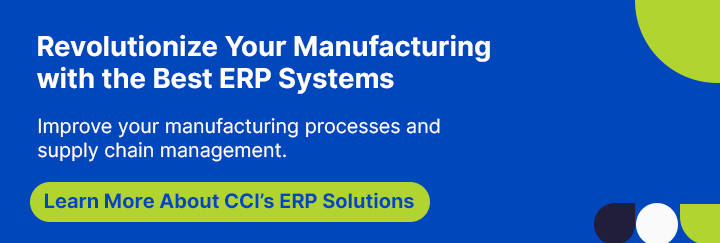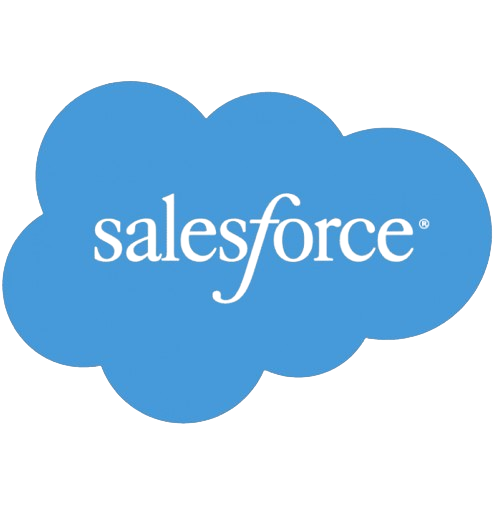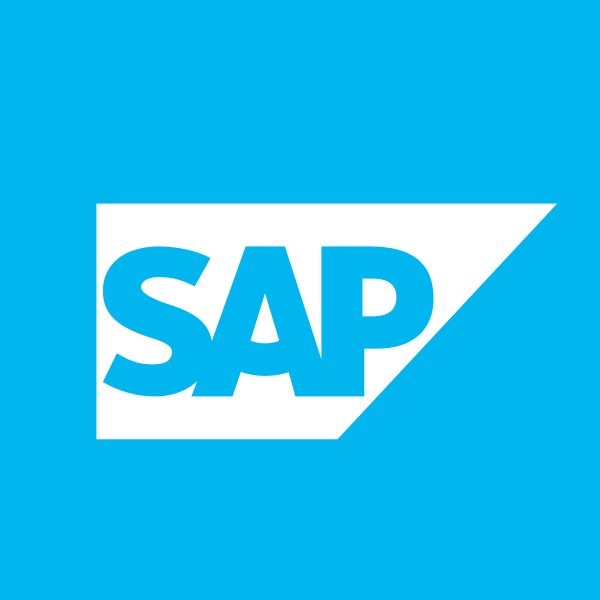Best ERP Software/Systems for the Services Industry in 2025/2026
Updated on February 19, 2026
Companies offering services—whether consulting, IT, healthcare, marketing, or financial—need systems that allow them to handle every moving part of their business. That’s where ERP (Enterprise Resource Planning) systems step in. They act as the organization’s backbone, managing projects, resources, clients, and finances in one unified system.
Choosing the right ERP system isn’t just a technical decision—it’s about ensuring your business thrives in an environment where every second counts and every client interaction matters. Several ERP systems are leading the way, each offering unique benefits to help service industries thrive in an ever-demanding market. Explore why ERP is essential for your business and dive into the seven best ERP systems that can reshape how you manage your services, clients, and growth.
>> Related Post: Best ERP for Small Businesses
Need for ERP for the Services Industry in 2025:
The service industry is unlike any other. It’s not about selling products; it’s about expertise in sales, time, and relationships. This means the pressure to meet client needs while keeping operations efficient is even higher. Whether you’re a consulting firm managing multiple clients or a marketing agency handling dozens of projects at once, an ERP system can make all the difference in helping you scale, grow, and succeed.
Here’s why service businesses need ERP systems:
- Managing Client Relationships:
In the service industry, client relationships can make or break your business. An ERP system helps you manage those relationships by organizing client data, tracking interactions, and ensuring you meet deadlines.
- Project Management:
Service-based industries often manage numerous projects simultaneously. An ERP system helps keep all projects on track by providing a clear overview of tasks, timelines, and resources.
- Resource Allocation:
Time is the most valuable asset for service industries. ERP systems ensure that your teams are assigned to suitable projects and that resources are distributed effectively.
- Financial Oversight:
Service companies often deal with complex billing processes. An ERP system simplifies this by integrating accounting functions, allowing for accurate invoicing, budgeting, and financial tracking.
>> Related Post: Best ERP Software for Banking & Financial Services
7 Best ERP Software for the Services Industry in 2025/2026:
1. SAP ERP
SAP ERP is a well-established player in the ERP world, trusted by businesses across industries. SAP ERP offers full tools for the service industry to manage finances, resources, and clients.
- Benefits: SAP ERP provides excellent tools for automating business processes, managing client data, and tracking project timelines. It’s built for companies that want complete control over every aspect of their operations.
- Drawbacks: One downside to SAP ERP is that it can be pretty complex to set up, requiring significant time and resources for proper implementation. Smaller businesses may need expert help to adapt to the system.
- Pricing: SAP ERP operates on a flexible pricing model, with costs dependent on the specific modules a company needs. Depending on usage, smaller businesses could range from moderate to high.
- Targeted Service Industries: SAP ERP is best suited for large-scale consulting, engineering, and IT service companies that need complete control over their project management, resource allocation, and financial oversight.
>> Related Post: Best SAP consulting companies
2. Workday
Workday specializes in human capital management (HCM) and financial management, making it an excellent choice for service-based businesses that rely on workforce efficiency and financial tracking.
- Benefits: Workday is easy to use and provides insights into employee performance and financial data. This makes it ideal for service businesses that must manage their workforce and project finances.
- Drawbacks: While Workday excels at managing employees and finances, it may not provide the comprehensive project management features some service companies require.
- Pricing: Workday is priced on a subscription basis, with costs varying according to the company’s size and needs. Due to the system’s scalability, larger businesses will likely face higher costs.
- Targeted Service Industries: Workday is an excellent fit for HR services, financial consulting firms, and any service industry focused on managing large teams and complex finances.
3. SAP S/4HANA
SAP S/4HANA is SAP’s next-generation ERP solution that uses in-memory computing to quickly process vast amounts of data. This real-time data processing is an excellent option for service businesses needing rapid insights.
- Benefits: SAP S/4HANA is particularly useful for businesses that need real-time data for decision-making. It provides quick information on project progress, financial status, and resource allocation.
- Drawbacks: Similar to SAP ERP, SAP S/4HANA can be challenging to implement and requires substantial management expertise.
- Pricing: Pricing is scalable based on the number of users and features needed, making it suitable for mid-sized and large service businesses.
- Targeted Service Industries: IT services, professional consulting firms, engineering, and architecture businesses.
4. ServiceNow ITSM
ServiceNow IT Service Management (ITSM) is designed to help providers manage and deliver IT services. It simplifies workflows and improves the efficiency of IT operations.
- Benefits: ServiceNow ITSM is excellent for service businesses in the tech sector that need to automate IT processes and ensure they meet service-level agreements (SLAs) with their clients.
- Drawbacks: This ERP system focuses on IT services, so businesses outside the IT sector may find it less helpful.
- Pricing: ServiceNow offers flexible subscription-based pricing based on the required number of users and modules.
- Targeted Service Industries: Managed IT services, tech consulting, and IT service providers.
>> Related Post: Best ServiceNow consulting companies
5. Snowflake Professional Services
Snowflake’s cloud-based data platform transforms how service-based companies manage and analyze data. While Snowflake isn’t a traditional ERP system, its data warehousing and analytics capabilities make it an essential tool for businesses that rely on big data.
- Benefits: Snowflake allows businesses to store and analyze vast amounts of data in real-time, enabling better decision-making and insights.
- Drawbacks: Snowflake is focused on data storage and analytics, so businesses that need comprehensive ERP functionality may need to integrate it with other systems.
- Pricing: Snowflake uses a pay-as-you-go pricing model, meaning costs are based on data storage and computing needs.
- Targeted Service Industries: Consulting firms, marketing agencies, and other data-driven service businesses.
6. MuleSoft Professional Services
MuleSoft is renowned for its ability to integrate various software solutions, making it an ideal ERP choice for companies that rely on multiple applications. MuleSoft connects different systems, allowing service-based companies to manage their operations.
- Benefits: MuleSoft helps service businesses integrate existing tools, making managing everything from client relations to internal operations easier.
- Drawbacks: MuleSoft focuses more on integration than offering full ERP functionalities, so it’s best suited for businesses that need a system connector rather than a standalone ERP.
- Pricing: MuleSoft’s pricing is subscription-based, with costs depending on the number of integrations and features used.
- Targeted Service Industries: Technology services, managed services providers, financial services.
>> Related Post: Best MuleSoft implementation & consulting companies
7. Asana
Asana is a popular project management tool that can serve as a simplified ERP solution for smaller service-based businesses. It helps teams collaborate on tasks, track project progress, and meet deadlines.
- Benefits: Asana’s ease of use and accessibility make it perfect for businesses that need a simple way to manage projects and collaborate with clients.
- Drawbacks: Asana doesn’t offer as many features as traditional ERP systems, making it less suitable for large businesses with complex operations.
- Pricing: Asana offers a free version for small teams, with tiered pricing based on additional features and team size.
- Targeted Service Industries: Creative agencies, marketing firms, and small consulting businesses.
>> Related Post: Best ERP Systems for the Food Industry in 2025
ERP for the Services Industry by CCI
At CCI, we believe that choosing the right ERP system is about more than just software—it’s about empowering your business to succeed. Whether you need help integrating tools, optimizing workflows, or managing client relationships, our team is dedicated to helping you find the perfect ERP solution.
At CCI, we specialize in offering ERP solutions such as SAP, ServiceNow, MuleSoft, and Snowflake. We work closely with service businesses to ensure their chosen ERP system aligns with their long-term goals, improving everything from project management to client satisfaction. We’re here to support you from implementation to integration and ongoing support, ensuring that your ERP system becomes the foundation for your business’s growth and success.
>> Related Post: Latest ERP Software in 2025
Conclusion
ERP systems are not just tools but the heart of a service-based business’s operations. In 2025-2026, businesses have more ERP options than ever, allowing them to find a system that perfectly fits their unique needs. Whether it’s SAP for large-scale project management or Asana for small teams, there’s an ERP system that can help your business thrive. At CCI, we’re committed to helping you navigate this critical decision, providing guidance, expertise, and long-term support to ensure you choose the right system for your future success.
FAQs: Best ERP Systems for the Services Industry
Why should service businesses invest in ERP systems?
ERP systems simplify managing multiple projects, clients, and resources, helping service businesses optimize efficiency, improve client satisfaction, and stay competitive in a fast-paced industry.
What makes SAP ERP stand out for service industries?
SAP ERP is ideal for larger service businesses needing complete control over project management, resource allocation, and finances, with customizable tools for different business processes.
How can Workday help service businesses manage their teams?
Workday focuses on human capital and financial management, offering real-time insights into employee performance and finances, making it ideal for HR-focused service businesses.
Is Snowflake a traditional ERP system?
While Snowflake isn’t a traditional ERP, it provides essential data management and analytics capabilities, helping service-based businesses make data-driven decisions and optimize their services.
Why choose CCI for ERP implementation?
CCI offers tailored ERP solutions to help service businesses find the right tools to manage their clients, projects, and operations, ensuring a seamless implementation process and long-term support.









